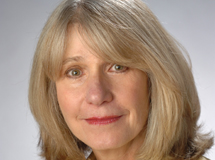Heartfelt Gift Recognizes Accomplished Alumna and 3 Generations of Orange
William Pelton and Mary Jane Massie have created the Barringer Pelton Public Service Graduate Scholarship to honor their niece, Jody Barringer ’95, L’98, G’08 (M.P.A.), and support future public servants. After working for a few years as an attorney focused…


 Patricia Demyan answers questions about Depression Screening Month (October). A brief online depression screening can be completed on the FSAP website. A more comprehensive screening is available in person at the FSAP office located at 111 Waverly Ave., Suite 215 (in the Health Services building). To schedule a screening, contact FSAP at 443-1087.
Patricia Demyan answers questions about Depression Screening Month (October). A brief online depression screening can be completed on the FSAP website. A more comprehensive screening is available in person at the FSAP office located at 111 Waverly Ave., Suite 215 (in the Health Services building). To schedule a screening, contact FSAP at 443-1087.